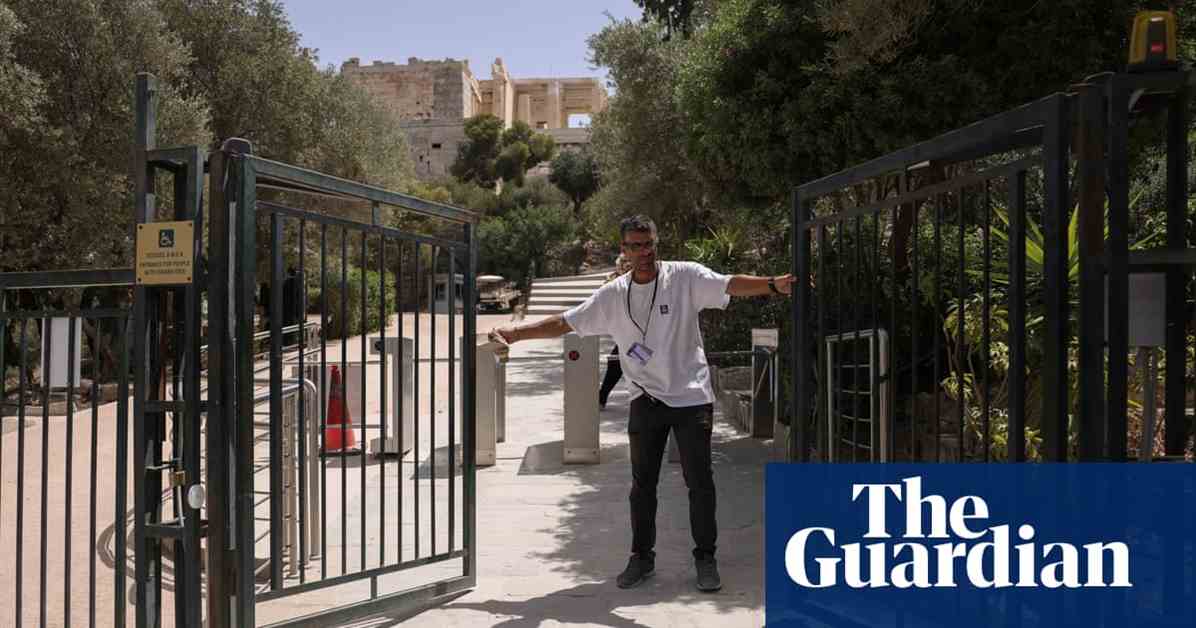The Acropolis, which is the most popular tourist site in Greece, had to shut down during the hottest hours of Wednesday due to the earliest heatwave on record in the country. The culture ministry announced that the UNESCO-listed archaeological site in Athens would be closed from midday to 5 pm as temperatures were expected to soar to 43C (109F) on Wednesday and Thursday. This marks the earliest heatwave in Greece’s history, defined as temperatures exceeding 38C for at least three days.
Meteorologists have noted that in the 20th century, Greece never experienced a heatwave before June 19. However, in the 21st century, there have been several instances, but none before June 15. The civil protection ministry has issued warnings of a high risk of fires in the Attica region around Athens, leading to the closure of schools in various regions, including the capital.
Public-sector employees have been advised to work from home, and a pause has been ordered for outdoor work, including food delivery, until Thursday. People have been seeking shelter from the scorching heat, with some taking refuge in air-conditioned spaces like the Syntagma metro station in Athens. In Thessaloniki, schoolteachers and students had to endure annual exams without air conditioning, using fans brought from home.
Tourists were asked to leave the Acropolis as it closed for the afternoon, and employees working in outdoor establishments like restaurants and shops faced challenges in coping with the extreme temperatures. Despite the difficulties, businesses in the tourist district of Plaka in Athens continued to operate, preparing for the upcoming tourist season.
Last year, the Acropolis had to close for two weeks during a heatwave, attracting a record number of nearly 4 million visitors. The popularity of the site was further enhanced by tourists arriving on cruise ships at the nearby port of Piraeus. The early onset of this year’s heatwave poses challenges for both locals and tourists, emphasizing the importance of taking precautions during extreme weather conditions.





















